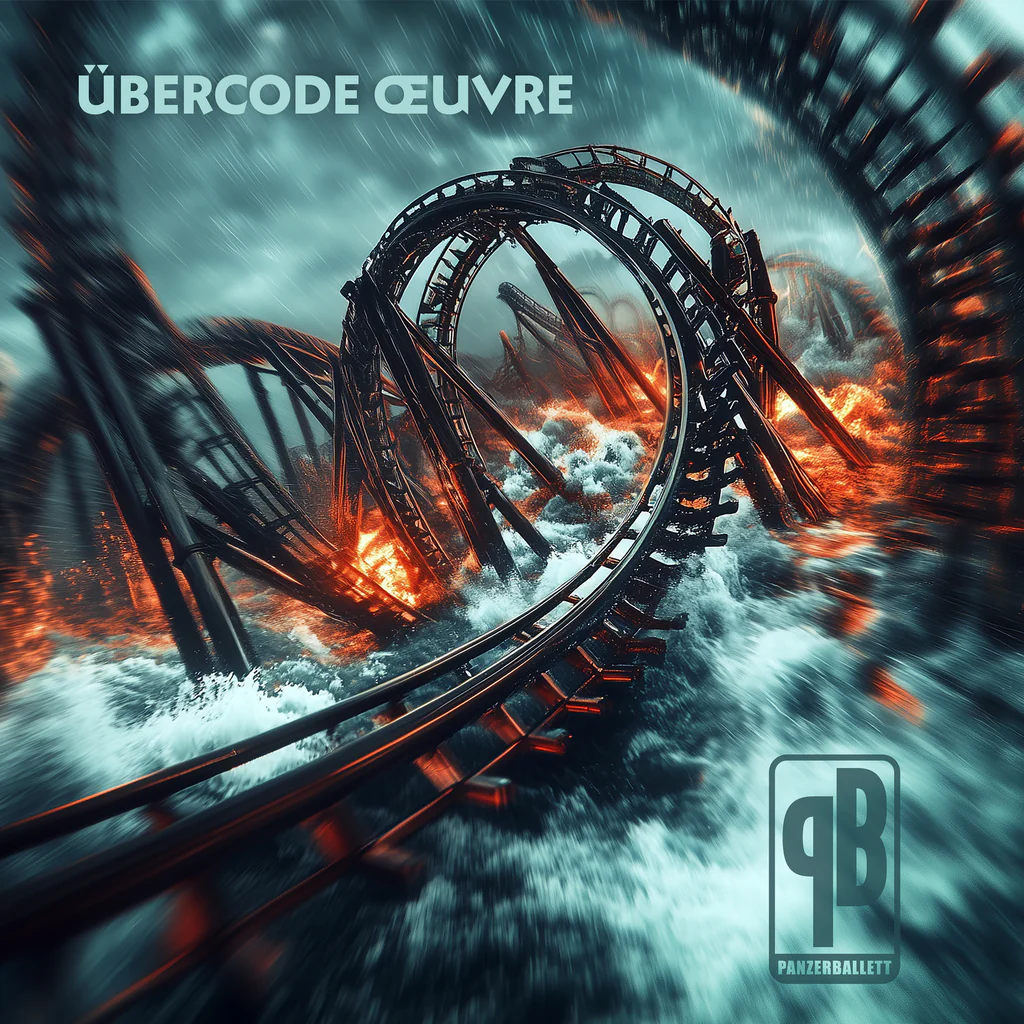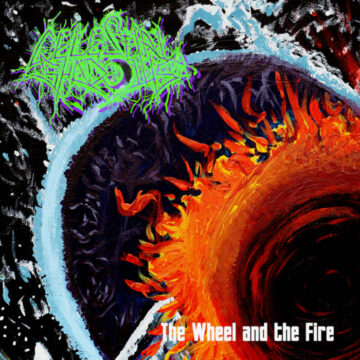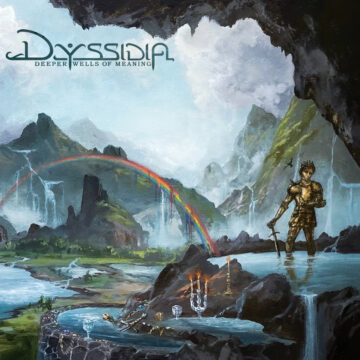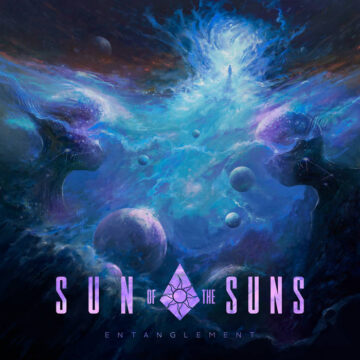Review: Panzerballett – Übercode Œuvre

Style: progressive metal, jazz fusion (instrumental, mostly instrumental)
Recommended for fans of: Jacob Collier, Liquid Tension Experiment, Animals as Leaders, Car Bomb, Meshuggah
Country: Germany
Release date: 25 April 2025
Why cover a song? Be it artistic appreciation, a business decision to gain exposure, or out of obligation to the tradition, the cover track is a mainstay for many artists, yet one often relegated to being an album’s bonus track. Bringing cover tracks to the forefront of an album, however, is risky; that comes with the pressure of living up to several of your musical and creative idols. Panzerballett try it—do they match the originals?
German jazz fusion/prog metal group Panzerballett cover plenty of legendary songs from progressive metal and classical music alike on Übercode Œuvre, putting their signature twist (a whole lot of rhythmic and melodic absurdity) on classics like Meshuggah’s “Bleed,” Beethoven’s “Ode to Joy,” Planet X’s “Alien Hip Hop,” and Vivaldi’s “Summer.” That is to say, the songs—some of which are already extremely difficult pieces—become unfathomably complicated to the non-music theorizer. I’m sure the guys in Panzerballett would talk about their music in the same way Jacob Collier talks about his, but in a German accent instead of Collier’s whimsical British one—twattishly pretentious while blissfully unaware that theoretical mastery doesn’t translate to being good.
As I see it, there is one main way to critically assess a cover: how does this add to the song’s canon? Panzerballett’s takes on the classics are certainly novel (barring the Planet X one), but they screw up what makes the original songs successful and are, accordingly, entirely terrible. No metal artist needs to cover Vivaldi, it’s been done ad nauseam (sorry, Angel, that includes you, too). One cannot possibly pull off two covers of “Ode to Joy” because they will always be a waste of time; why on God’s green earth would I listen to a prog metal version of one of the most celebrated pieces of music of all time that defeats its elegant simplicity by making it polyphonic, polyrhythmic masturbation? Other choices, such as the “Alien Hip Hop” cover, are even more baffling. Panzerballett take what is undeniably one of the most rhythmically and harmonically complicated progressive metal songs ever and try to make it more challenging to play. At what point does art become an exercise in onanism? That moment is long gone in Panzerballett’s rearview mirror. And I’m afraid the Planet X cover is the clear highlight of Übercode Œuvre because the original song was already good and they don’t change it all that much—a pointless recreation but not bad.
The covers of “Bleed” and “Ode to Joy” (both versions) are among the worst progressive metal tracks I’ve ever heard from capable musicians, a pair of blazing guitar solos from Rafael Trujillo (ex-Obscura, Obsidious) in “Bleed” aside. The Meshuggah cover utilizes annoying horns to create a melody that simply wasn’t in the original song, while the rhythm section plays something in a time signature I couldn’t dream of figuring out—the result sounds as if it were recorded drunkenly despite the instrumental wizardry. Moreover, Panzerballett add atmospheric guitar parts in dissonant chords, ringing out like out of tune bells above the din, heralding the end of good music. Again, I’m sure the harmonic polyphony is genius technically, but it’s more masturabatory than even Jordan Ruddess at his worst.
“What could adding in the motif from William Tell’s ‘Overture’ possibly add to ‘Bleed’?” one might ask. And they’d be justified because it’s eclecticism for eclecticism’s sake. “Ode to Joy (Vocal)” starts promisingly with a warped vision for the track, Andromeda Anarchia’s (Folterkammer, La Suspendida) vocals operatic and eerie, but the track almost instantly devolves into Guantanamo Bay-level torture. While assuredly not actually out of tune and out of time, it sure sounds like it. Between the added phone hold-music jazz, drum solos, and “poorly harmonized,” warbling sopranos, I cannot think of a worse way to sodomize one of the most celebrated pieces of music in history—and that’s before Panzerballett start djenting all over the place.
The original compositions on Übercode Œuvre (yes, it’s not completely a cover album) are ok, fairly run of the mill for this style of fusion prog metal. “Seven Steps to Hell” and “Andromeda” are easily identified strong moments on the album: convoluted and with irritating saxophone and djent parts, but stronger than their surroundings nonetheless. The Ballett are a better ensemble as jazz composers than metal ones (despite the obvious metal pedigree). Their style doesn’t translate to djent and distortion well.
We all like some wank in the prog metal world. I can throw down to freaky microtonality, and I think cover tracks can be fun. But I cannot think of a worse attempt at any of those three things at once than Übercode Œuvre, an offensively terrible listening experience so far up its own ass Jacob Collier might blush.
Recommended tracks: Seven Steps To Hell, Alien Hip Hop, Andromeda
You may also like: La Suspendida, Sarmat, Ckraft, Planet X, Exivious
Final verdict: 2/10
Related links: Bandcamp | Spotify | Official Website | Facebook | Instagram
Label: independent
Panzerballett is:
Jan Zehrfeld: guitars, vocals
With:
Virgil Donati: drums
Marco Minnemann: drums
Morgan Ågren: drums
Anika Nilles: drums
Florian Fennes: sax
Anton Davidyants: bass
Jen Majura: guitars
Andromeda Anarchia: vocals
Rafael Trujillo: guitars
Sebastian Lanser: drums
Joe Doblhofer: guitar
Chris Clark: vocals
Conny Kreitmeier: vocals
(taken from ProgArchives, I cannot find an official declaration of lineup)



1 Comment
Review: Barend Tromp - Odd Time Concepts - The Progressive Subway · June 27, 2025 at 2:00 PM
[…] tracks: Sitharsis, Chromatron (Parts 1-3), Pandrah Ka YantraYou may also like: Panzerballett, Coevality, Soften the Glare, Planet X, QuadviumFinal verdict: […]